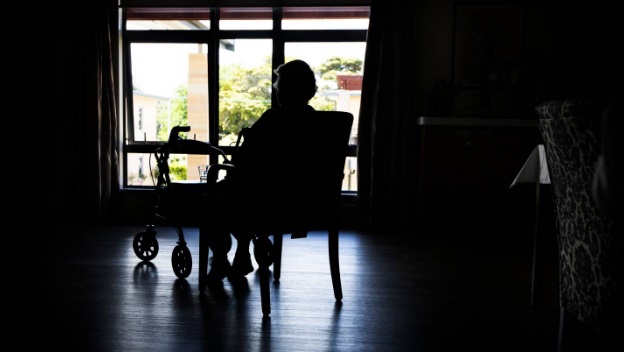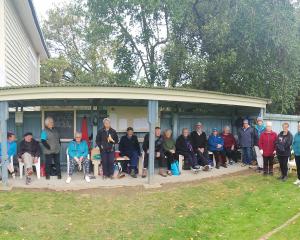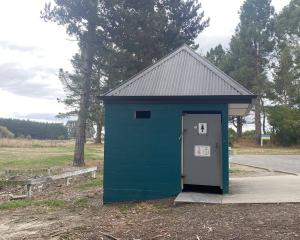
She filed a complaint with the Health and Disability Commissioner, who today released her decision and the "multiple failures" by Radius Elloughton Gardens.
Deputy commissioner Rose Wall issued eight recommendations, including that Radius issue an apology to the woman's family.
However, Radius stands by the level of care provided to the woman, stating that although she refused her food and fluids, they continued to offer it to her.
Wall's report states the woman was transferred to Radius in 2018 before dying in hospital three months later, a day after she was admitted.
Prior to her death, the woman had been diagnosed with severe dementia and had other medical issues.
Before she was admitted to Radius, an assessment was due to be completed but a lot hadn't been done as she had been in hospital at the time.
However, staff had recorded that she was "independent with eating and drinking once set up and given prompts", and could mobilise independently but "require[d] steady assistance ... to remain safe".
The DHB's progress notes at that time stated that she could "sometimes present resistant and a little agitated toward staff with food, fluid and medication".
"However, she is easily persuaded."
The woman's daughter told the commissioner that she had concerns about her mother's care about a month later, when she believed she wasn't getting enough fluids.
"[Daughter] said that often visitors found her mother thirsty and not having eaten her meals, and that when they assisted her she both ate and drank well."
The daughter emailed the facility manager with her concerns. She was told that staff would assist her but that sometimes she would not eat and required a lot of prompting, and it could take up to an hour to feed her the main meal.
However, responding to her concerns, he said a food and fluid chart would be commenced.
She still continued to lose weight so a dietician was called in to develop a food plan.
It was two months before she began holding then slightly putting on weight - 2kg.
Given her progress the dietician ordered the chart be stopped.
From then on she began losing weight as she continued to refuse her food and fluids.
She either drank less or didn't eat at all for the next eight days until she died in hospital.
Commissioner Wall said staff did not undertake adequate assessments or put in place adequate food and nutrition, taking into her account her dementia.
"Towards the end of her stay, staff failed to identify and respond to signs of dehydration and deterioration."
Less than two weeks prior to her death, the woman's daughter noticed her mother "extremely agitated, scratching her mid to upper body incessantly".
She informed the doctor and was due to have a skin scraping for suspected scabies; however, due to multiple delays, she wasn't seen for another 12 days - two days before she died.
Halfway through that wait time, the woman was placed in a room by herself.
The woman's daughter told the HDC that she was "deeply shocked and heartbroken" when she saw the "appalling condition" her mother was in by the time she reached the hospital, having seen her only 10 days previously.
"I feel my mother did not receive adequate medical care, fluids and water intake when in isolation for nine days at Radius Elloughton.
"Duty of care was clearly not shown by the four nurses while my mother was in isolation, particularly on my mother's last day at Elloughton Gardens."
Radius admitted that the woman's food and fluid intake did reduce in the last nine days of her life, but staff continued to offer it to her throughout that time.
"[Patient] refused to consume most of her food, and only accepted the Ensure powder drinks.
"Radius accepts that [patient's] fluid intake during her stay at [Elloughton Gardens] was variable.
"The staff have reported that it was extremely difficult to keep [her] fluid intake up, as she often refused to sip or swallow fluids."
Radius told HDC that generally, she "would only agree to eat quarter to half of her meal, and on occasion she would refuse to eat any of her meal. This was likely due to her worsening dementia and pre-existing conditions (which included difficulty swallowing."
Radius said Elloughton Gardens wasn't equipped to provide intravenous fluid to residents.
"Radius is confident that it did the best it could in the circumstances to keep [her] fluid intake up.
"With the benefit of hindsight, Radius now accepts that it should have held a multidisciplinary team review ... in [her last month] when it was evident that [her] health was deteriorating."
As for a delay in her scabies scraping, Radius said it was caused by "a number of intervening events that occurred", including the woman suffering some skin tears — one of which required her to go to hospital — and her doctor going on leave.
Reflecting on the case, Radius accepted it should have recognised that [she] was approaching a palliative care phase in her last month.
However, Radius denied that the woman did not receive the requisite level of care during her stay.
The company said while it was saddened for the woman's family, it felt that the care and service it provided to her was "reasonable and appropriate".
However, deputy commissioner Wall issued eight recommendations as there were "multiple failures" in the care provided at Elloughton Gardens.
"[Her] deterioration was not unexpected, owing to her severe dementia, of which dehydration is a common feature, and she was reliant on staff to identify this and to implement appropriate care, in agreement with the family."
Independent advice was also sought from registered nurse Rachel Parmee who said "there were very clear signs that [she] was dehydrated and that her health was deteriorating between 18th and 26th", - the day before she died.
Parmee also felt there were failures in nursing competency levels for failing to respond to "clear signals that [patient] was in a state of dehydration and deterioration".












